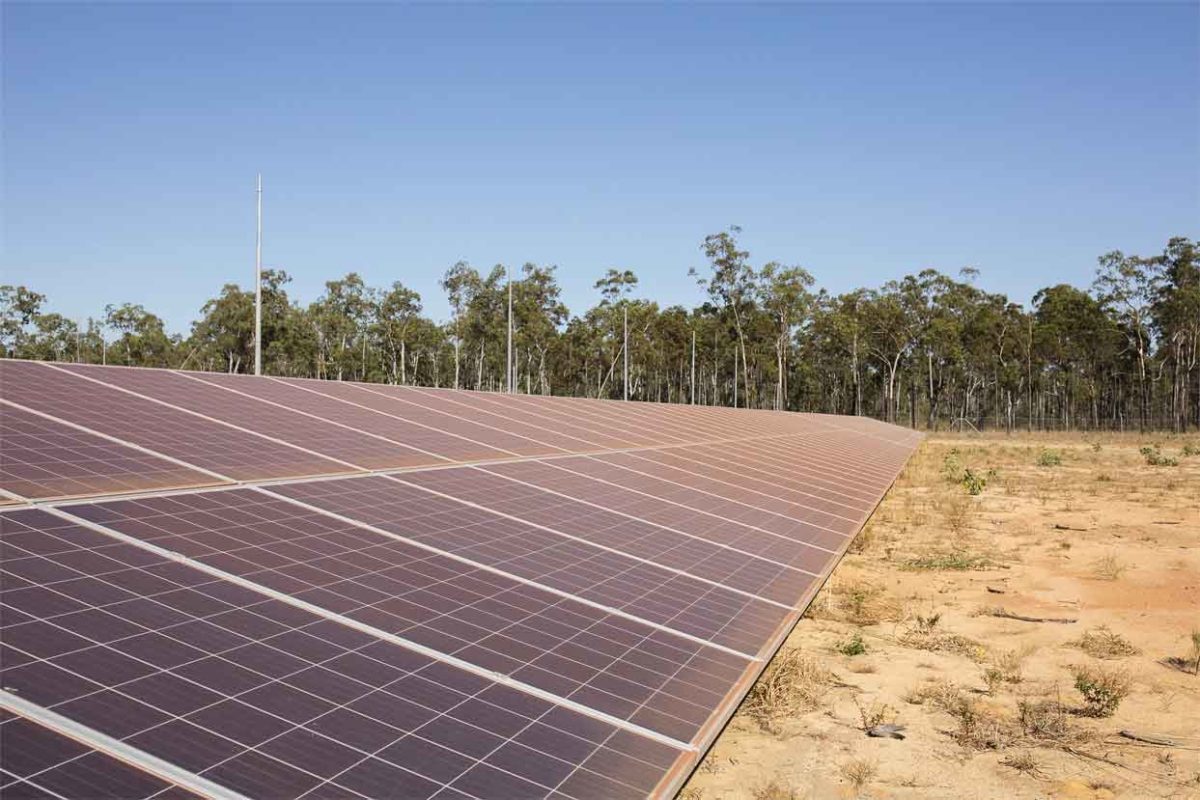Eni Australia has completed the acquisition of two solar projects at Batchelor and Manton Dam from NT Solar Investments, a wholly owned subsidiary of Australia’s renewables developer Tetris Energy. The move marks the Italian oil major’s further effort to diversify its gas- dominated portfolio Down Under.
Earlier this year, Eni entered the Australian renewables market with the acquisition of the Northern Territory’s largest solar project – the 33.7 MWp Katherine Solar Farm – from a joint venture set up by Australia’s Epuron and the UK-based Island Green Power. Currently under construction, the $40 million solar farm will be coupled with a 5.7 MVA/2.9MWh battery storage system.
Just like the Katherine project, the two 12.5 MW solar farms will employ an innovative cloud coverage predicting technology to forecast possible variations in solar irradiation so as to minimize the impact to the grid. All three solar farms have inked long-term offtake deals with state-owned utility Jacana Energy and are forecast to considerably boost the renewables share in the NT’s energy mix.
All three solar developments are part of the NT government’s plans to take its three grids to an installed total of 450 MW renewables by 2030, mostly solar PV, as envisaged in the Roadmap to Renewables Report released in 2017. Among other initiatives, the NT government has invested in a $59 million joint investment with ARENA for the Solar SETuP program providing 10 MW of solar across 25 remote communities, $5 million into the Rooftop Solar in Schools program, $8.3 million in the 5 MW Alice Springs Battery Energy Storage System and $4.5 million in our smart energy grants scheme.
The Katherine solar farm is expected to be switched on by the year’s end, while the Batchelor and Manton Dam solar projects are pencilled in for completion by the third quarter of 2020 after which they will start to supply clean energy to over 5,000 homes each year.
Green assets
The latest move is part of Eni’s pledge to expand on its existing assets in the oil and gas sector and widen its renewables portfolio. The fossil fuel company has been present in Australia through its subsidiary Eni Australia Ltd since 2000. It is the operator and 100% owner of the Blacktip Gas Project and has a non-operated interest in the Bayu-Undan gas and condensate field and in the associated Darwin LNG plant.
Eni only recently entered the renewable energy business. After setting up its new Energy Solutions department in 2015, the company announced in September of 2017 that it will cooperate with Algeria’s Sonatrach to build a 10 MW PV plant in the country. The Italian concern has built a 20 MW solar plant in Ghana and is planning to install 220 MW of solar at its Italian sites between 2018-2021.
But Eni is not alone in this push towards a greener asset portfolio. Globally, oil and gas majors are increasingly investing in renewables in the face of mounting pressure from consumers, investors and regulators pushing for an energy transition. In the Asia-Pacific region outside China, renewable energy investment is expected overtake spending on upstream oil and gas projects as soon as next year, according to an earlier report from Norwegian consultancy Rystad Energy. And Australia is set to emerge as one of the leading investment destinations.
Besides Eni, other upstream majors that have dipped their toes into solar in Australia are: Total Eren, Lightsource BP, Enel and Shell.
This content is protected by copyright and may not be reused. If you want to cooperate with us and would like to reuse some of our content, please contact: editors@pv-magazine.com.









By submitting this form you agree to pv magazine using your data for the purposes of publishing your comment.
Your personal data will only be disclosed or otherwise transmitted to third parties for the purposes of spam filtering or if this is necessary for technical maintenance of the website. Any other transfer to third parties will not take place unless this is justified on the basis of applicable data protection regulations or if pv magazine is legally obliged to do so.
You may revoke this consent at any time with effect for the future, in which case your personal data will be deleted immediately. Otherwise, your data will be deleted if pv magazine has processed your request or the purpose of data storage is fulfilled.
Further information on data privacy can be found in our Data Protection Policy.